From The President: GP clinics that teach

From The President: GP clinics that teach
May brings World Family Doctor Day – and I think of my dear colleagues and how they celebrate our day with such enthusiasm. I also reflect on one of the most interesting things I do as a WONCA President which is to visit colleagues in their clinics and training facilities and learn about their practice situation.
I recently did this in Benglauru, India and in Haikou, China, visiting three clinics which all have roles in teaching our younger generation of family doctors. Specific training for our speciality is one of the things that makes strong Family Medicine, but it is essential that this includes training in the community, supervised by family doctors.
Bengaluru – teaching, wellness clinic and hospital
Dr Sri Vidya Ragavendran took me on a visit of the Family Medicine Department of the Bangalore Baptist hospital. They run a residency program here and the Family Medicine department has five centres: an express clinic, two urban health centres, a rural health centre, and palliative care including inpatient hospice care.
There are eight members of the family medicine faculty and every year they get six residents so at any point there are around 18 residents. There are structured academic sessions; seminars, case presentations and journal clubs.
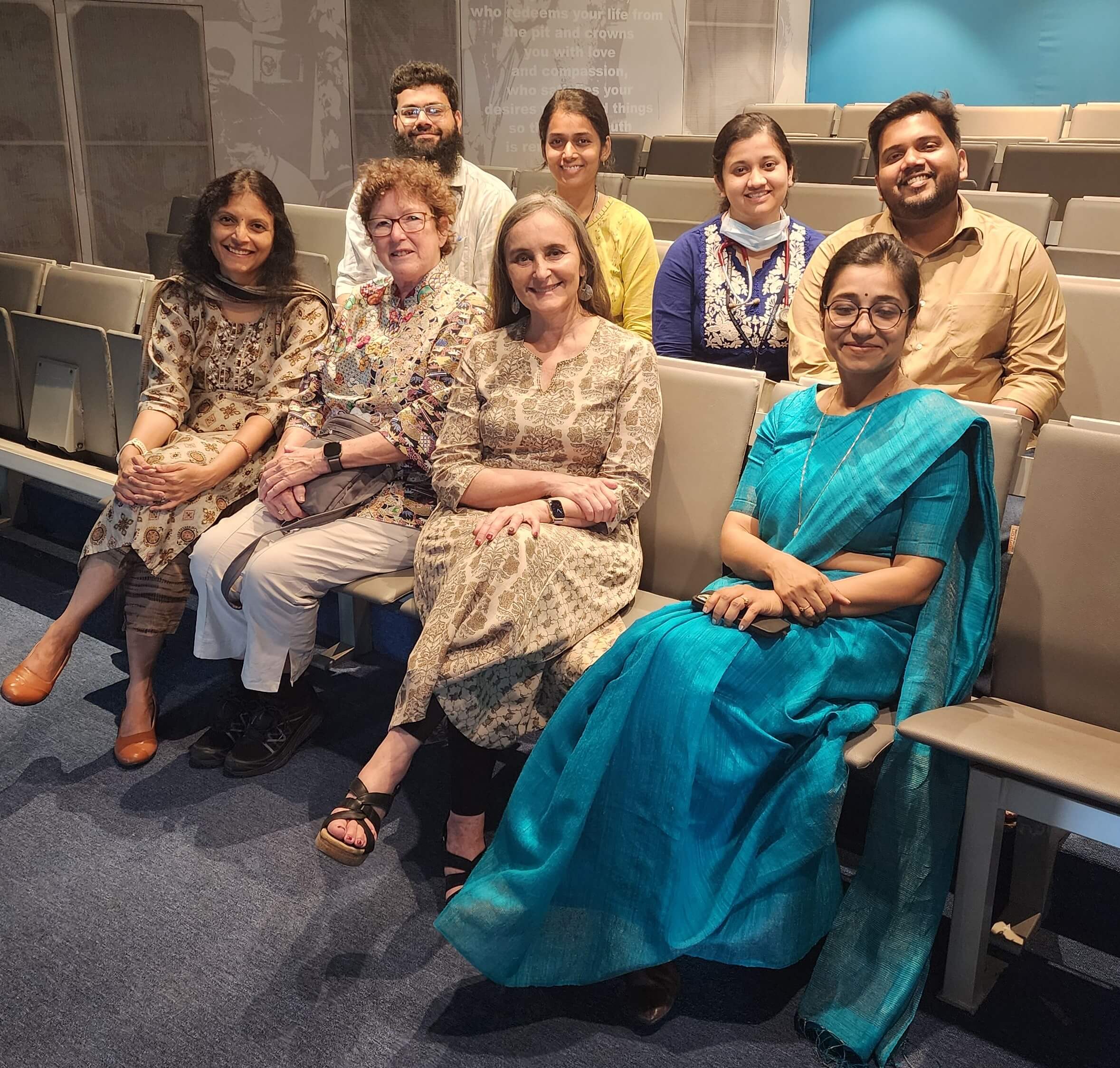
Faculty discussion photo shows (l to r): front: Dr Ragavendran, Wonca President and President-elect, and Dr Carolin Elizabeth George. Back: Dr Raees, Dr Meghana, Dr Merlin and young Dr Diwine Davis.
Residents such as Young Doctor, Diwine Davis, undergo a three-year training program in Family Medicine of which nine months is spent in the community serving patients in these various health centres. In clinic, away from the hospital, they have Point of Care Testing (POCT), pharmacy, palliative care and community outreach services. The cost of services is discounted for patients of the Baptist facilities.
The remainder of their training time is spent in the hospital doing a range of terms such as internal medicine, obstetrics, paediatrics, dermatology, emergency care, surgery, psychiatry. The curriculum is well defined and centralised and focusses mainly on the learning needs of the family doctor to enable them to practise independently.
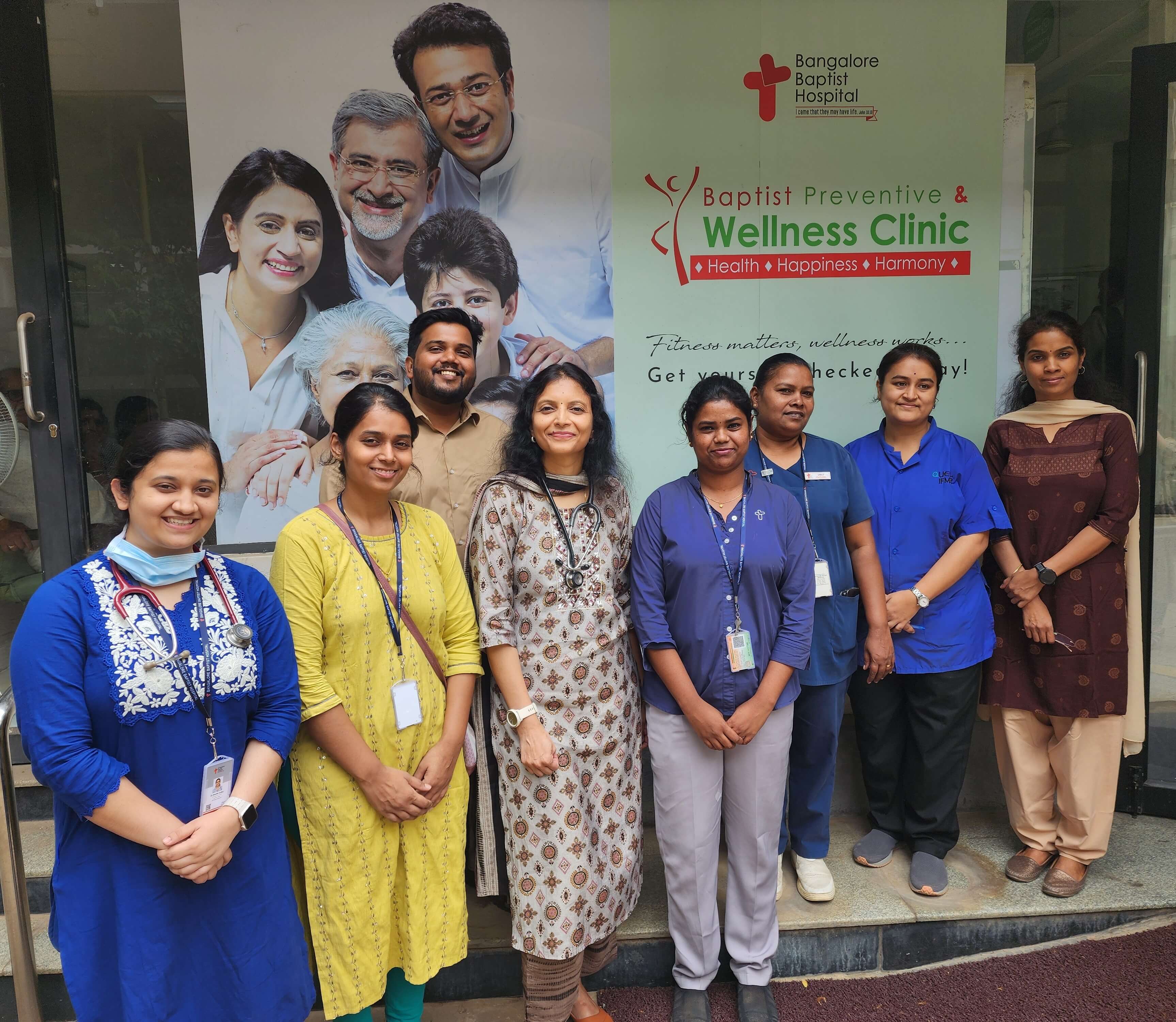
There are also regular assessments (both theory and clinical) and Dr Diwine Davis is well aware they have an exit exam at the end of their program.
I visited the Express clinic on site in the hospital facility. The team started the Express clinic over five years ago, as a clinic to provide ‘one stop’ care for all patient needs. There is a separate primary care ‘Preventive and wellness’ clinic to ensure catering for all the medical needs of a patient.
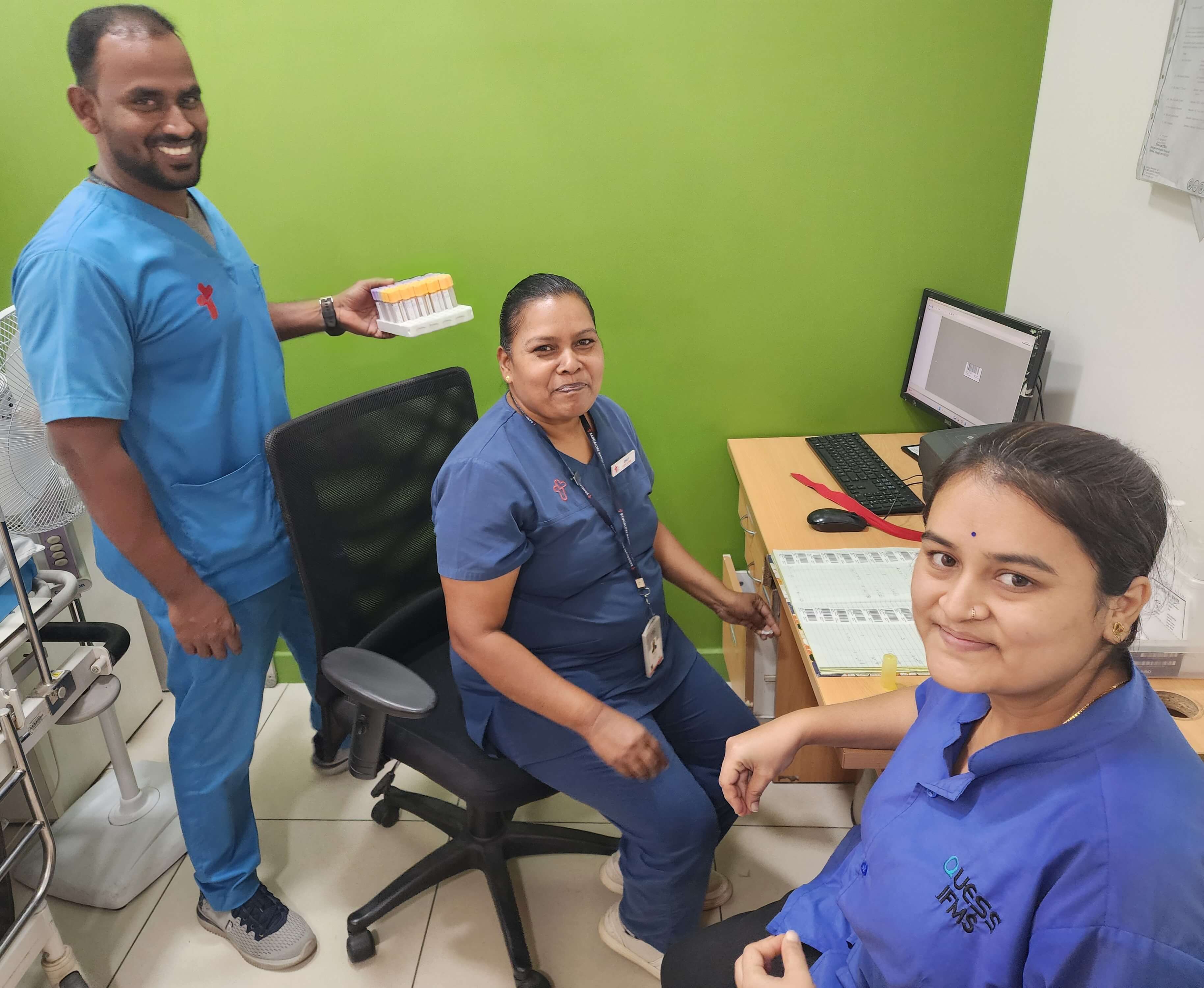
They are team of two doctors, Dr Sri Vidya Ragavendran and Dr Shalini, nurse Emily, health care assistant Chaya, phlebotomist Ramki, and a reception team lead by Ms Deepa. (Photo l to r Ramki Emily and Chaya)
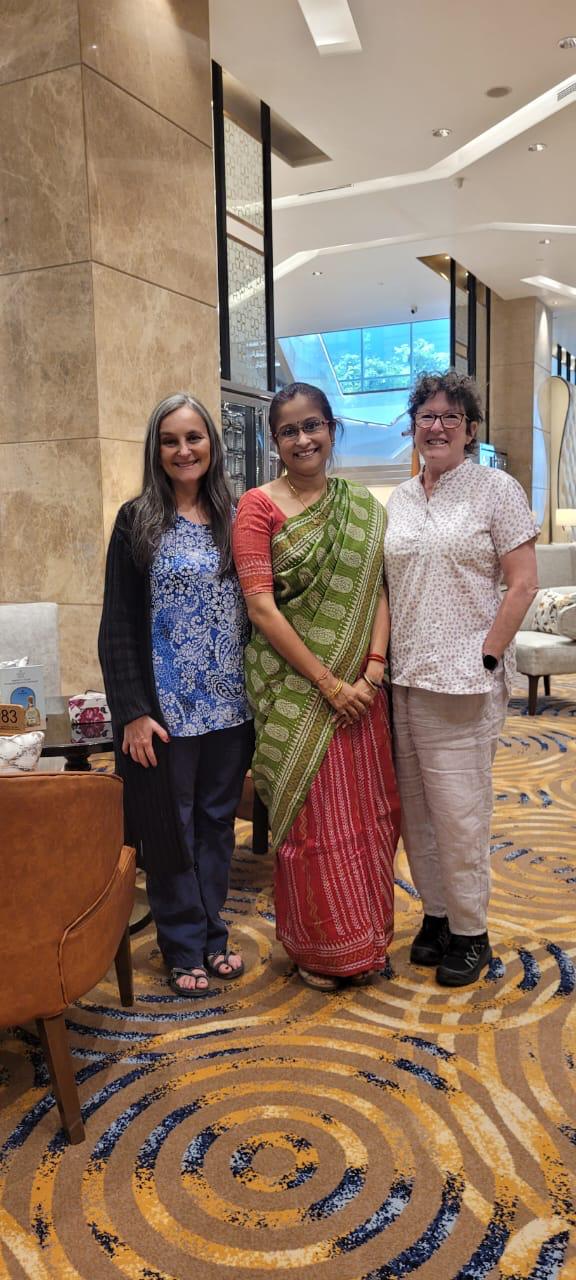
Their day starts at 7.30 am and aim to keep waiting time as low as 20 minutes, which is quite an achievement in any country! They manage acute medical problems, chronic diseases (such as diabetes, hypertension). They also undertake all vaccinations, including for adults.
A delicious lunch of local food was provided to myself, and WONCA President-elect Viviana Martinez Bianchi and there was much to discuss and as always, many comparisons and similarities noted.
Two clinics in Haikou
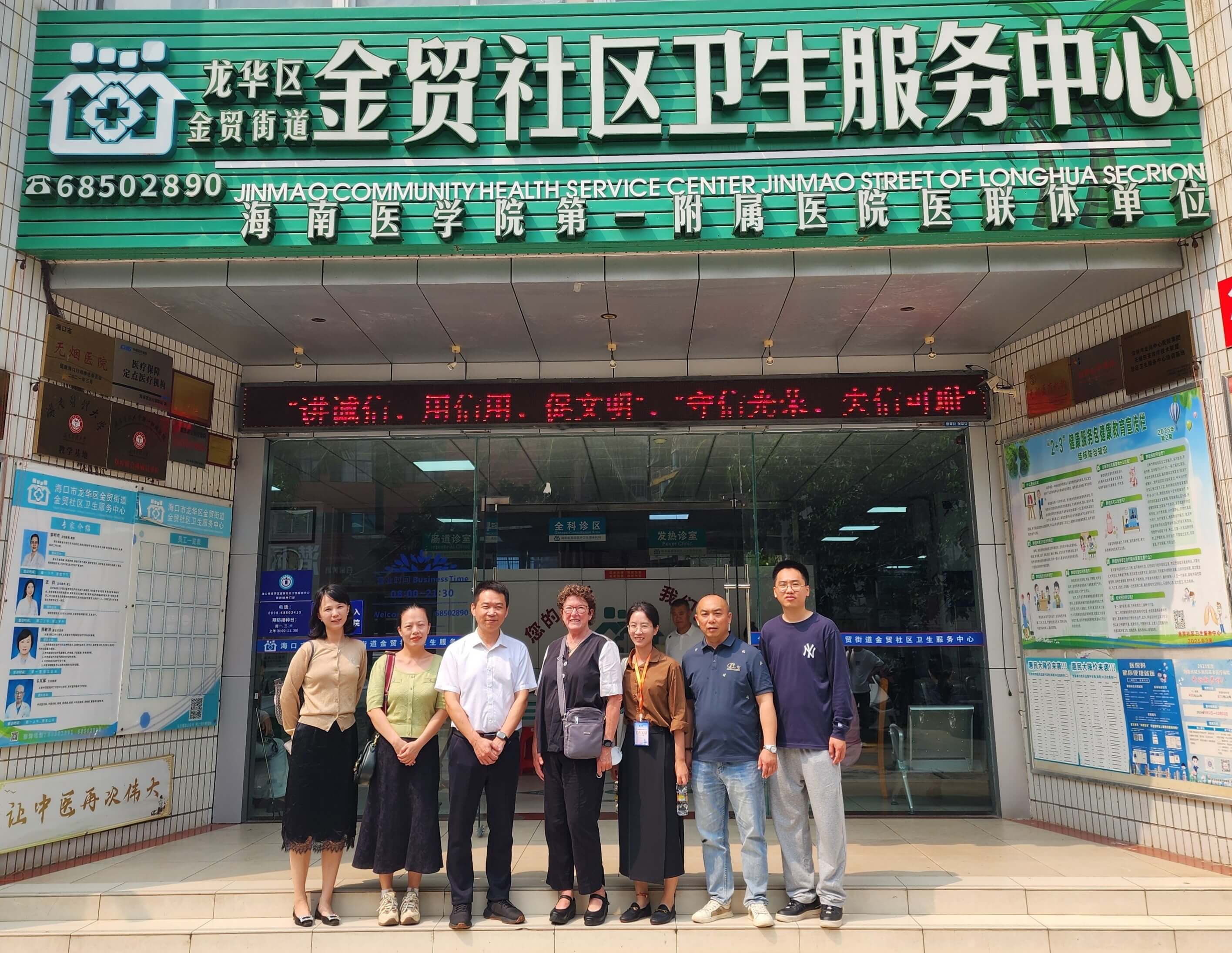 In March, while at the conference Cross Straits Medical Exchange Association, GP Branch in Haikou I was lucky to be able to visit two clinics.
In March, while at the conference Cross Straits Medical Exchange Association, GP Branch in Haikou I was lucky to be able to visit two clinics.
Jinmao Community Health Service is part of the First Affiliated Hospital of the Hainan Medical University medical consortium. Its aim is to provide exceptional community and family health care.
It pleased me to find the strong emphasis on family medicine and the pivotal role of family doctors, aiming for continuous, personalised, and holistic medical services for their community.
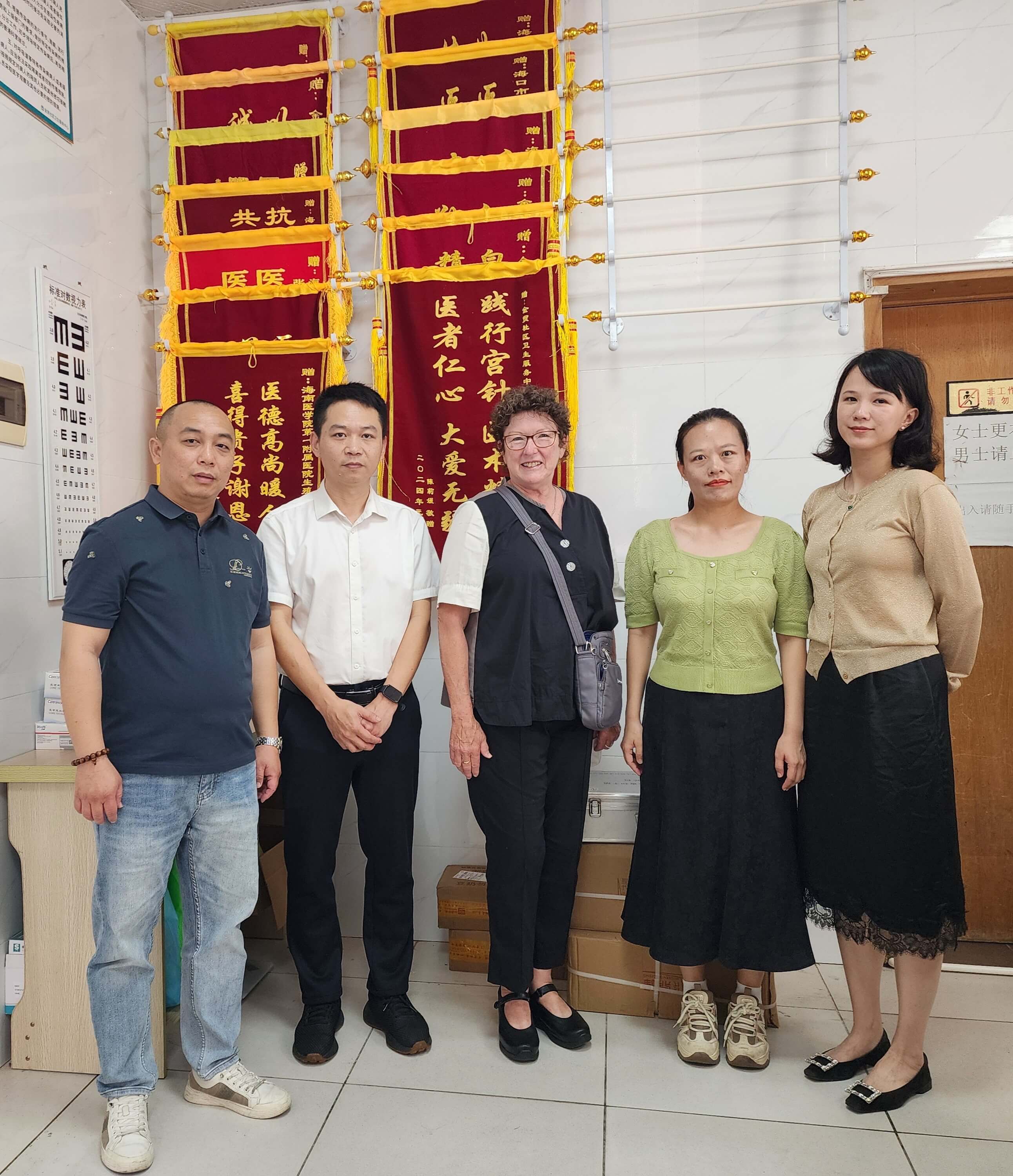
The team has seven general practitioners but a total staff of 77, so the GPs are very well supported by a large team.
A variety of medical services are offered, including preventive health care, chronic disease care, Traditional Chinese Medicine and, interestingly, physiotherapy focussed on paediatric massage. GPs do home visits aiming for that comprehensive approach that is important.
Jinmao Community Health Service is also a teaching base for Hainan Medical University, training doctors and nurses.
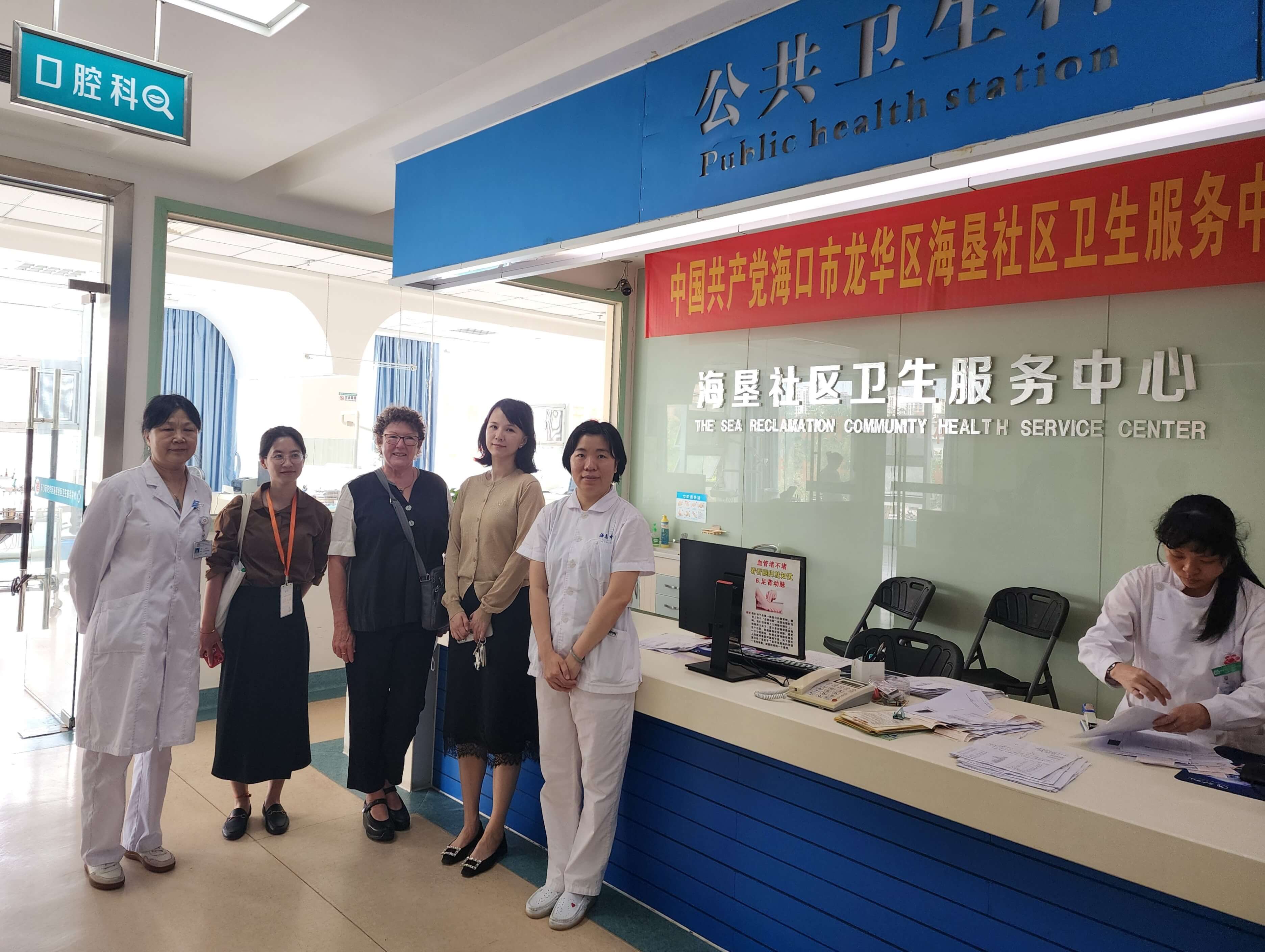
My second visit was to Haiken Community Health Service Centre which provides comprehensive community and family health care. There is a strong emphasis on family medicine but some other specialised services are provided including rehabilitation and various specialist visits. The centre has 36 inpatient beds, four outpatient beds, five dental chairs.
The centre operates on the principle of "first, make a diagnosis in the community, then, minor illnesses are treated in the community, with serious illnesses referred to hospitals, and finally, rehabilitation back in the community."
On the occasion of my visit, the dental chairs were in operation and I was of course, fascinated by dental care being offered, knowing that dental care in my own country something many cannot afford as the public system does not support it. (see photo)
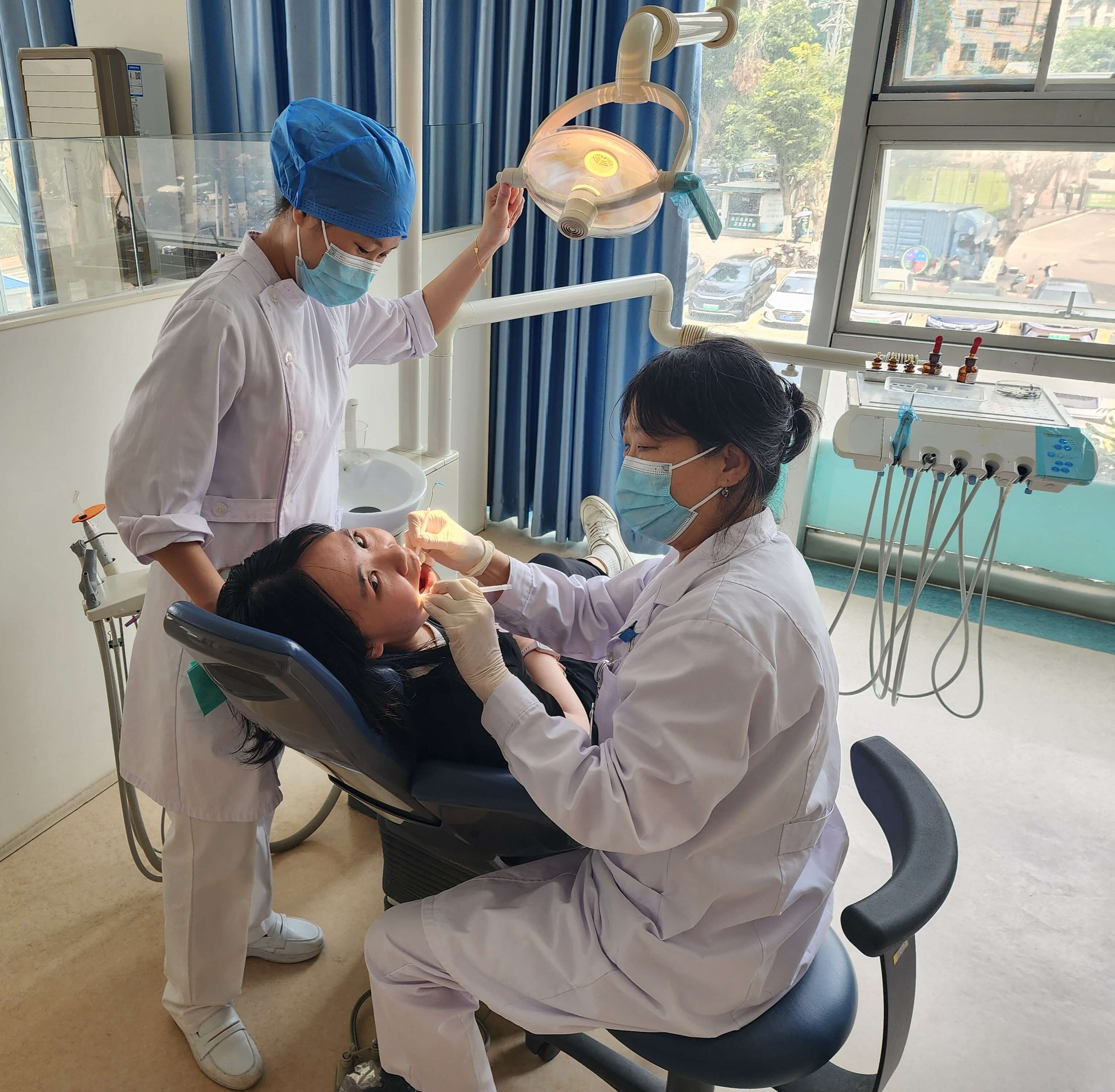
The Centre contains the best and most functional district-level rehabilitation centre for disabled persons in Hainan Province and understandably given the facilities, is a rehabilitation demonstration centre.
I thank the teams at all sites for their hospitality and insights into their daily lives s family doctors.
More visiting in my next column!
A/Prof Karen Flegg
WONCA President